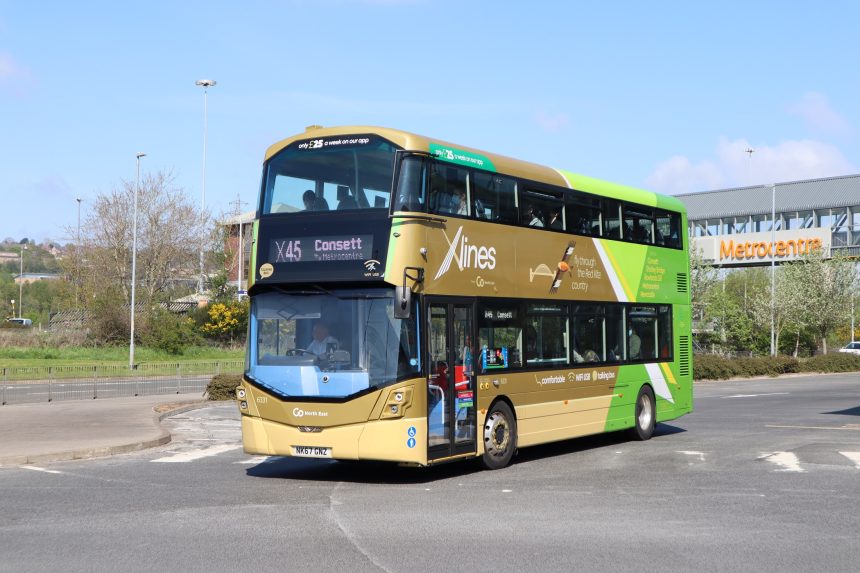The Urban Transport Group (UTG) is a further body to call for a five-year funding settlement approach for bus services in England. It says that such a policy should begin with provision of “urgent” certainty on revenue support beyond 2025 and work towards a “devolved single pot” allocation for the mode.
UTG laid down its position in a letter to Chancellor of the Exchequer Jeremy Hunt ahead of the spring budget on 6 March. It notes that a devolved, longer-term approach to transport funding adopted via the City Region Sustainable Transport Settlement (CRSTS) mechanism has already shown its worth in areas eligible for CRSTS money.
Addressing Mr Hunt directly, UTG Director Jason Prince says that the same approach to bus funding across England is imperative to ensure that National Bus Strategy aims are delivered and to avoid further loss of mileage and patronage.
Mr Prince’s letter highlights that there is “clear empirical evidence” to show that public money put towards transport is well spent, and that sustainable and adequate investment in that area “is key to achieving economic growth, net-zero, and levelling up.”
Advocated in the Group’s detailed submission is that long-term funding would represent a firm transition away from the competitive approach that has long been favoured for some schemes in England.
UTG says that the latter “wastes time [and] resource, and causes delays,” with its favoured strategy being one that would allow areas to focus available money “to ensure best value, focus on delivery, and target funding based on local knowledge about impact.”
Separately, UTG has carried out data modelling that it says shows how enhanced revenue support for bus coupled to capital investment can bring significant benefits.
The Group claims that bus patronage could increase by 126 million trips per year if revenue support was maintained at current levels and combined with increased take-up of zero-emission buses and the delivery of bus priority to reduce each journey time by one minute.
“The capital investment delivers year-on-year efficiency savings for operators, allowing them to potentially deliver higher levels of service and in turn generate higher revenue,” the submission says. “These interventions would undoubtedly make a huge difference to bus service levels and passenger experience.”
In January, the Confederation of Passenger Transport also called for a five-year funding settlement approach for the bus industry in England as part of its manifesto for the sector.
Urban Transport Group letter to Mr Hunt and full pre-budget submission here.
























